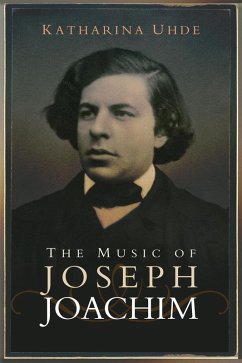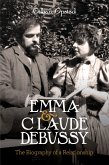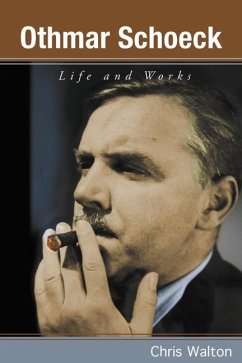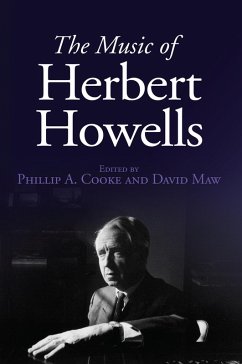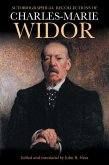Joseph Joachim (1831-1907) was arguably the greatest violinist of the nineteenth century. But Joachim was also a composer of virtuoso pieces, violin concertos, orchestral overtures and chamber music works. Uhde's book will be thestandard work on the music of Joseph Joachim for many years to come.
Joseph Joachim (1831-1907), of Jewish-Hungarian descent, was arguably the greatest violinist of the nineteenth century. His performing career in Berlin transformed the aesthetics and interpretation of German music. But Joachim wasalso a composer of virtuoso pieces, violin concertos, orchestral overtures, and chamber music works, all written between 1847 and 1864 in one intense outpouring of creativity.
Katharina Uhde follows Joachim's compositionalpath through a changing cultural milieu. Joachim's compositions display intimate knowledge of the works of Mendelssohn, Wagner, Liszt, Schumann, and Brahms, yet he was no mere imitator. Joachim's style, classically conceived yetseasoned with a preference for dark, melancholy soundscapes and, in the earlier years, ciphers, virtuosity, and 'psychological' programmaticism, emerges as the product of various personal and socio-cultural currents: his search for national, religious, and cultural identity and a mature compositional style.
Joachim's music drew on a wealth of treasures accumulated in his process of 'enculturation', which began with Mendelssohn in Leipzig. Joachim'saesthetic evolved from a deeply subjective approach, not insignificantly inspired by his muse, Gisela von Arnim. Her circle - the von Arnim and Grimm families - became Joachim's cultural and literary haven. But unforeseen events also impacted his output, among them Schumann's death, the ascent of the young Brahms, and the 'War of the Romantics'. Joachim's music throws light onto a vibrant decade, colored by realism, naturalism, new visual technologies, andemerging academic disciplines including psychology. Uhde's book will be the standard work on the music of Joseph Joachim for many years to come.
KATHARINA UHDE is Assistant Professor for Violin and Musicology at Valparaiso University, IN.
Joseph Joachim (1831-1907), of Jewish-Hungarian descent, was arguably the greatest violinist of the nineteenth century. His performing career in Berlin transformed the aesthetics and interpretation of German music. But Joachim wasalso a composer of virtuoso pieces, violin concertos, orchestral overtures, and chamber music works, all written between 1847 and 1864 in one intense outpouring of creativity.
Katharina Uhde follows Joachim's compositionalpath through a changing cultural milieu. Joachim's compositions display intimate knowledge of the works of Mendelssohn, Wagner, Liszt, Schumann, and Brahms, yet he was no mere imitator. Joachim's style, classically conceived yetseasoned with a preference for dark, melancholy soundscapes and, in the earlier years, ciphers, virtuosity, and 'psychological' programmaticism, emerges as the product of various personal and socio-cultural currents: his search for national, religious, and cultural identity and a mature compositional style.
Joachim's music drew on a wealth of treasures accumulated in his process of 'enculturation', which began with Mendelssohn in Leipzig. Joachim'saesthetic evolved from a deeply subjective approach, not insignificantly inspired by his muse, Gisela von Arnim. Her circle - the von Arnim and Grimm families - became Joachim's cultural and literary haven. But unforeseen events also impacted his output, among them Schumann's death, the ascent of the young Brahms, and the 'War of the Romantics'. Joachim's music throws light onto a vibrant decade, colored by realism, naturalism, new visual technologies, andemerging academic disciplines including psychology. Uhde's book will be the standard work on the music of Joseph Joachim for many years to come.
KATHARINA UHDE is Assistant Professor for Violin and Musicology at Valparaiso University, IN.
Dieser Download kann aus rechtlichen Gründen nur mit Rechnungsadresse in A, D ausgeliefert werden.

